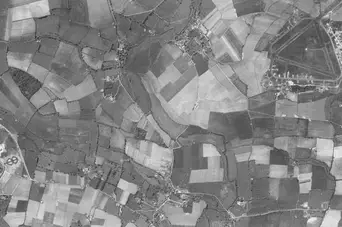In a landmark decision issued by the Alaska Supreme Court last Friday, law enforcement agencies in Alaska are now prohibited from taking enhanced, zoomed-in photographs of private property without a warrant. This ruling stems from an incident in 2012 involving Alaska State Troopers who conducted aerial surveillance of John William McKelvey III’s property north of Fairbanks. Acting on a tip, they captured high-resolution images of a suspected marijuana cultivation operation using a camera that magnified views nine times beyond natural sight.
These photographs were subsequently used to secure a search warrant, leading to the discovery of illegal substances and firearms on McKelvey’s premises. Following his conviction on drug and weapons charges, McKelvey contested the legality of the evidence, arguing it was obtained through an unconstitutional search. His case was initially dismissed by the Superior Court but found traction on appeal, eventually reaching the state’s highest judicial body.
The Alaska Supreme Court’s decision focused heavily on the right to privacy as enshrined in the state constitution, emphasizing the broad protections against unreasonable searches and seizures. The justices argued that warrantless aerial surveillance using advanced optical technology could significantly intrude on individuals’ private lives, potentially deterring Alaskans from enjoying their private spaces freely.
While the court’s ruling specifically addresses the use of zoom lens technology in aerial surveillance, it left open the question of whether traditional, unaided aerial observations would also require a warrant. Justice Peter Maassen, in a concurring opinion, suggested that the state constitution should offer even broader privacy protections, potentially extending to any form of aerial monitoring that could intrude on personal privacy.
This decision marks a significant moment in the ongoing debate over privacy rights and law enforcement’s use of technology in surveillance, setting a precedent that could influence future legal standards in Alaska and beyond.

